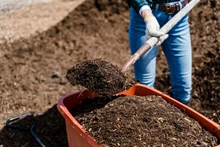
In a concerted effort to provide safe and potable tap water to every rural household in the country, the Government of India initiated the Jal Jeevan Mission (JJM) in August 2019. The mission, implemented in collaboration with state governments, aims to ensure a regular and long-term supply of water that meets prescribed quality standards.
Recognizing that drinking water is a state subject, the responsibility for planning, approval, implementation, operation, and maintenance of water supply schemes lies with State and Union Territory Governments. The central government supports these entities by offering both technical and financial assistance.
Since the launch of the Jal Jeevan Mission, significant strides have been made in improving access to tap water in rural households. At the outset of the mission in August 2019, only 16.8% of rural households, approximately 3.23 Crore, had tap water connections. As of December 7, 2023, reports from States and Union Territories indicate that an additional 10.53 Crore rural households have been provided with tap water connections under JJM. This means that out of 19.24 Crore rural households in the country, approximately 71.51% now have tap water supply in their homes.
To foster a sense of ownership among rural communities and Panchayats, the Jal Jeevan Mission incorporates aspects of village-level planning and community participation in all decisions related to water supply systems. The World Health Organization (WHO) estimates that achieving full tap water coverage in rural households will result in saving more than 5.5 Crore hours of time daily. This time is currently spent collecting water for household needs, primarily by women.
Key initiatives under the Jal Jeevan Mission to encourage women's participation include:
-
Formation of Village Water & Sanitation Committees: More than 5.29 lakh sub-committees or user groups of Gram Panchayats, known as Village Water & Sanitation Committees (VWSC) or Pani Samiti, have been constituted. These committees comprise at least 50% women members and ensure suitable representation for marginalized sections of society. They are responsible for planning, implementing, managing, operating, and maintaining in-village water supply systems.
-
Women Empowerment through Training: Five women from every village are identified and trained to test water samples using Field Test Kits (FTKs). To date, 23.36 lakh women have received training, and more than 82.05 lakh water samples have been tested through FTKs in 2023-24.
-
Engagement of NGOs and Women's Groups: Over 14,000 NGOs, Volunteer Organizations (VOs), Women's Self-Help Groups (SHGs), Community-Based Organizations (CBOs), Trusts, and Foundations, collectively referred to as ISAs (Implementing Support Agencies), are actively involved across the country. Their role includes facilitating women's participation at all levels of planning, implementation, management, operation, and maintenance of in-village water supply systems.
The Jal Jeevan Mission's commitment to inclusivity and community involvement underscores its broader impact on improving the quality of life for rural households while empowering women in the process.











